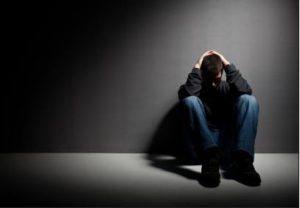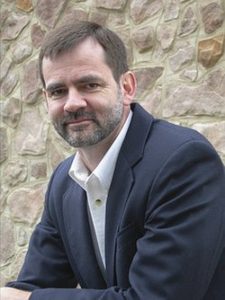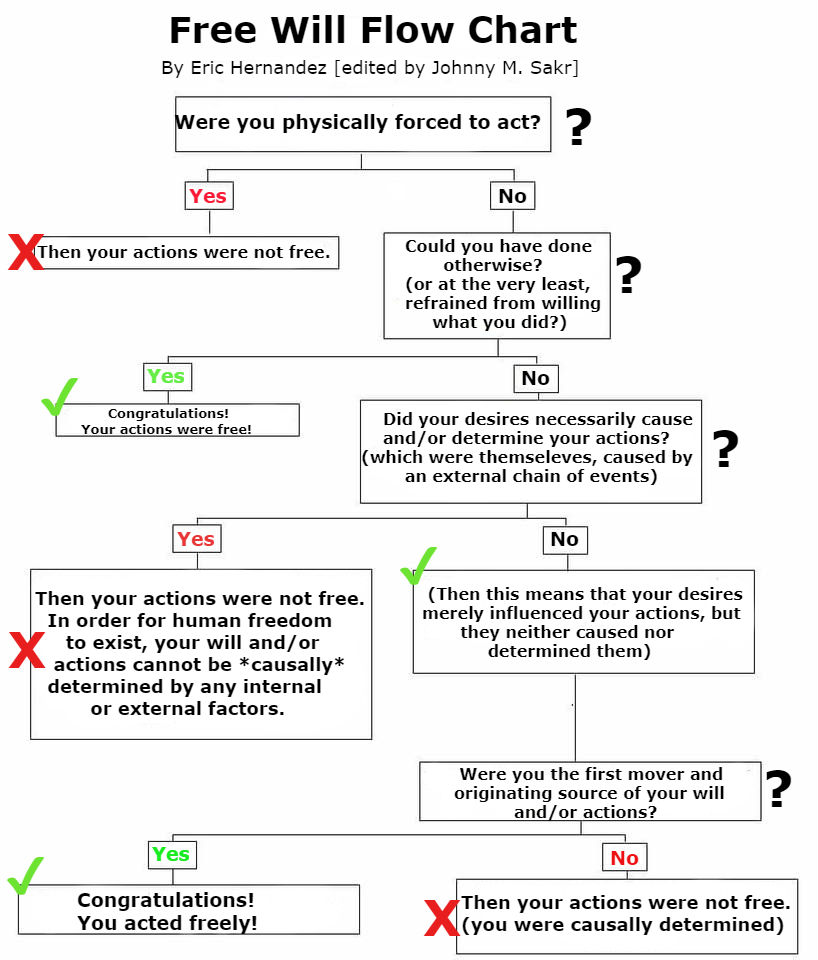Mental Disorders, Free Will, and Romans 7
Preface:
In responding to someone concerning the existence of what is known as Libertarian Free Will, I decided to sketch a quick flow chart that could aid one in recognizing whether or not free will exists or applies to a given situation. (See Chart Below)
In book project “Why I’m Not an Atheist: An Analysis of the Self-defeating, Irrational, Philosophically Inconsistent, Logically Incoherent, Unjustified Atheistic Worldview” (currently unfinished at the time of this writing), I dedicate an entire chapter to the subject of free will where I propose a way to define and identify its existence via two conditions:
- Being the originator to your will or actions.
- Having what is known as dual ability- which is the ability to “will or refrain from willing”.
The first condition is not only sufficient, but necessary, while the second condition is merely sufficient. That is to say, if you have lack the first, then free will does not exist, or at minimum, is not applicable to the given situation, whereas if you lack the second, free will could still exist as long as the first condition applies. Hence, the first is both necessary and sufficient, whereas the second is merely sufficient, but not necessary.
To elaborate on the first condition, this means that for any given action to count as free, you must be the primary, first cause of that action, as opposed to the action being caused by some prior, external cause. For instance, if you are the reason for which your arm moves, then all things being equal, you were the originator and source of that action. However, if the movement of your arm was caused by a prior, external source (such as the electrical shock of a taser), then the movement of your arm was not caused by you, and thus, you were not the originator or source of the action. Therefore, unless you are the first, primary mover and source of an action, then the action cannot count as free.
To elaborate on the second condition which is equally sufficient for identifying the existence of libertarian freedom is having what is known as dual ability. This means not only having the ability to freely will an action (the first condition), but more pertinently, having the ability to freely refrain from willing the action altogether. To give an example, suppose that I had a choice to choose between option A or option B, and in the end, I choose option A. According to dual ability, although I chose option A over B, I could have just as easily refrained from choosing A, willed to choose B, or at the very least, refrained from choosing either, even if all the circumstances were the same. For this reason, if dual ability does exist, then it is equally sufficient to demonstrate and identify that libertarian freedom must exists, as well.
With this in mind, Brad Fuller submitted the following question:
QUESTION:
When Paul says [in Romans 7] if he does not do what he wills to do, but instead, what he hates- that he does, then according to your flowchart, where does Paul fall?
RESPONSE:
GREAT question! A few things to be said, because Paul is touching on quite a few areas here:
- He is implicitly touching on the nature of human beings as a soul with a body (substance dualism).
- He is teaching on discipline and spiritual formation.
And
- He is indirectly touching on the question of freedom of the will, though I think his focus is more on #2.
For this reason, Romans 7 is one of my favorite passages to bring up regarding LFW (Libertarian Free Will), and more specifically, regarding discipline and spiritual formation, which of course, requires a libertarian freedom of the will. And as I have argued on other occasions, the existence of the soul is a necessary, ontological condition and requirement for the sheer possibility of LFW in the first place. That is to say, it is logically possible for a soul to exist without LFW, but it is not logically possible for LFW to exist without a soul (see explanation at 37:30 of this video).
To begin with, I think Paul is speaking in hyperbole here, much like when he says that he is the chief of all sinners (see 1 Timothy 1:15). Surely, there were men more wicked than him, but this use of hyperbole was a common way of getting a point across. So, I don’t think he’s literally trying to teach that his actions are causally determined and that therefore, he is not acting freely when he sins.
Second, note that Paul is making a clear distinction between his self (literally, the soul) and his body by distinguishing the proclivity to sin which is in his body, and what he sincerely wishes that he 
This is profound because it is something that we can all relate to as believers. Have we not all fallen into the same, habitual sin over and over, and wanted to quit, but have not found the will power or ability to do so? This brings us into the area of discipline and spiritual formation, which also brings us to what is known as neuroplasticity and cognitive behavioral therapy. Bear with me while I briefly unpack the relevance.
Consider for a moment someone who suffers from mental disorders such as depression, anxiety, or OCD. Such people have their moods, desires, and feelings determined by a chemical imbalance in the brain which leads to such disorders. This is much like how one’s desire for a particular food is governed and even determined by the biology in their brain and body. Thus, I can openly agree that my hunger is not something that I have directly willed or controlled (hence, some people even suffer from eating disorders). But here’s the catch.
If the soul exists and libertarian freedom is true, then such factors merely influence my decisions and 
By the same token, picture a drug addict. Their desires are very much determined by their chemical dependency and literally feel trapped. I do not deny this one bit. But does this mean that their will is not free? No, it does not.
Put differently, if a drug addict robs a bank to satisfy his desires for drugs, were his desires for the drugs free? Probably not (at least not at this point, but one could argue that prior to the addiction they were). However, just because we concede that his desires were determined by his state, it does not follow that therefore, his actions were equally caused or determined as well. Hence, we do not punish him for having the desire, but for the actions that he took in order to satisfy his desires. That is to say, he did not have to act upon his desires, but nevertheless, he freely chose to give in.
This is the same with people who suffer from OCD or depression. They cannot control these states, and such states are caused by chemical imbalances in their brain. Their actions, however, are up to them, and I would sympathize that their power to resist is very weak. Nevertheless, while they cannot simply “freely” WILL (that is, carry it out) themselves to be physically better, they still have the ability to freely will, want, and desire to be better in the first place.
To give an analogy, suppose that my hands were tied down to a chair so tightly that it became physically impossible to lift them up. For some, this would imply that my free will had been taken away due to the fact that I could not freely and physically move around. But this simply does not 
In other words, while having my hands tied down to a chair may incapacitate my ability to lift my arms, it does not incapacitate my ability to, at the very least, will the act of lifting my arms, even if physically, I could not. Hence, removing my ability to physically carry out an action does not remove my ability to freely will, desire, or attempt the action in the first place- even if the action were physically impossible. For this reason, the question of human freedom is more appropriately a focus and concern of the will, not action. Therefore, as long as someone is, at the very least, free to WILL to be better, then they possess a libertarian freedom of the will, even if physically, they cannot freely perform what they will. Hence, Paul says, “I can will what is right, but I cannot perform it.” (v.18)
Alas, here is where the existence of the soul and neuroplasticity come into play. As Dr. Curt 
Jeffery Schwartz, who is one of the world’s leading neuroscientists and researcher in the areas of the mental conditions mentioned above, has demonstrated a way to change the chemistry of one’s brain simply by thinking differently. This is known as cognitive behavioral therapy. Why? Because every time a though happens with an action, a groove is being dug into one’s brain, which in turn, eventually creates a habit. And as Dr. Thompson remarks, 
To be brief, by challenging one’s habitual thoughts one can literally change the way neurons fire, and thus, change the wiring of one’s brain. That is to say, while one may not have direct control over one’s moods or desires, through this discipline, one can change and aid in improving these conditions by changing the way one thinks about them. However, this of course requires a libertarian freedom of the will, which in turn, requires the ontological existence of the soul.
In other words, if I am not my body, but am a soul, then my body does not control what I do, but instead, influences what I do. At the end of the day, I control whether or not I will give into what my body wants. This is why fasting is important. By fasting, you discipline yourself to not give into what the flesh desires, and in turn, learn to prioritize one’s spiritual formation over one’s bodily habits. The same can be said with regards to
Similarly, one who suffers from anxiety, depression, or OCD must first realize that their brain merely influences their actions, but it does not control their actions, and that their state is caused by a chemical imbalance in the brain. Thus, while medicine is certainly highly encouraged and can aid in this imbalance, it is also important to recognize that pills cannot teach skills.
So where does all this fit into the flow chart? Well, again, Paul here is making the distinction between the proclivity and habits of one’s flesh vs one’s desires to do better, though the power to perform the good seems unattainable. However, through discipline and spiritual formation (which requires cognitive behavioral therapy), one can learn the skills needed to aid in changing the chemistry in their brain, and moreover, gain the tools needed to change one’s behavior. Hence the phrase, cognitive behavioral therapy.
So with regard to the chart:
- Paul is not being physically forced to sin
- He can (and does- v.18) at the very least, WILL the desire to do better, which is sufficient to grant LFW via his dual ability.
- Moreover, his desires here are merely influencing his actions, and not in the literal sense, causing them, which satisfies the first condition.
- He is the first mover of his actions, and because of this, has the ability to engage in spiritual formation/cognitive behavioral therapy, and eventually discipline himself and gain the power to change his behavior. Hence, Paul gives us verses such as:
- 1 Corinthians 9:27 “But I discipline my body and bring it into subjection, lest, when I have preached to others, I myself should become disqualified.”
- Romans 12:1-2 “I beseech you therefore, brethren, by the mercies of God, that you present your bodies a living sacrifice, holy, acceptable to God, which is your reasonable service. 2 And do not be conformed to this world, but be transformed by the renewing of your mind, that you may prove what is that good and acceptable and perfect will of God.”
- Romans 6:12-14 “Therefore do not let sin reign in your mortal body, that you should obey it in its lusts. And do not present your members as instruments of unrighteousness to sin, but present yourselves to God as being alive from the dead, and your members as instruments of righteousness to God. For sin shall not have dominion over you, for you are not under law but under grace.”
So in summation, Paul is being transparent in illustrating what many of us encounter in our daily 
-Eric Hernandez
Related Articles:

Related Resources:

Got a question? Submit any questions regarding God, Philosophy, Apologetics, Theology, Christianity, or the like to our ministry via Facebook, Youtube or our Website. Thank you and God bless.



